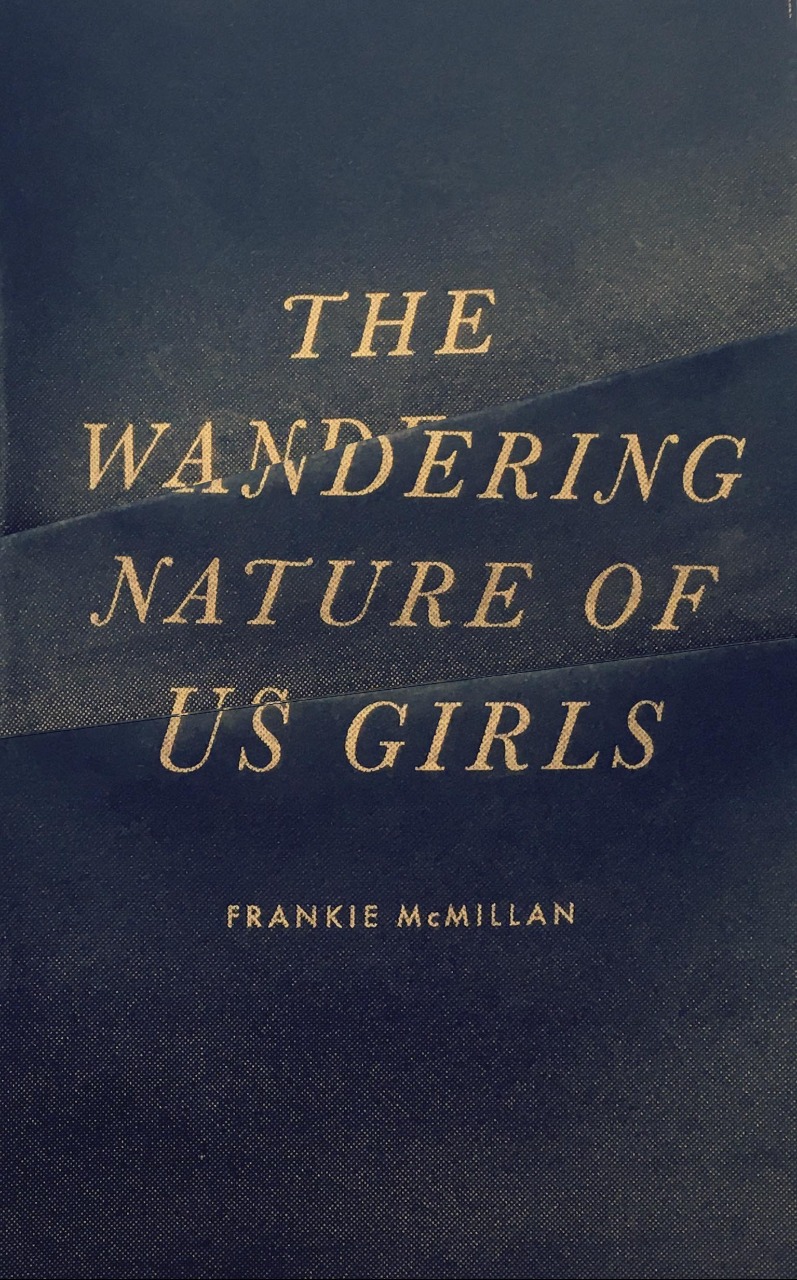Frankie McMillan is one of New Zealand’s best flash fiction writers: this is a genre that stretches from traditional short stories, condensed to a few hundred words, all the way to prose poetry. The 57 pieces in McMillan’s fascinating new book — her sixth — are split into five sections organised loosely by theme, forming a genre-bending collection of prose, poetry and essay-ish creative nonfiction.
The Wandering Nature of Us Girls rests at the lyrical, poetic edge of flash, suggested by McMillan’s approach to punctuation. Full stops are in short supply; a dozen stories are told in one long sentence, and others are broken into parts with one full stop per paragraph. It speaks to McMillan’s control of language that this dearth of conventional punctuation isn’t obvious.
McMillan’s 2016 collection My Mother and the Hungarians, longlisted for the Ockham New Zealand Book Awards, was intensely personal; the title of McMillan’s most recent book, The Father of Octopus Wrestling (2019), suggests her trademark wit and imaginative embrace of the surreal. Once again, there’s a delightful streak of surrealism in this collection —Mr Whippy is a recurring character, framed either as an ice-cream salesman or a sentient cartoon mascot. In ‘Chase’, he turns ‘off his ice cream shaped speakers because “Green Sleeves” isn’t what he wants to hear right now’. When his wife, Mrs Whippy, shines a torch down his ear canal, she detects not only slush in his ear but ‘a cul de sac of sprinkles’.
Another McMillan trademark, the thematic link of water, means the book’s settings include lakes, rivers and an inflatable pool, and roles for swans and a taniwha. One piece — ‘Steadfast’s Breath’, a particular standout —introduces the reader to the fairground/travelling circus which provides a setting for several of the other works here.
The three women yell his name, ‘Steadfast! Steadfast!’ I’m thinking Mormons. Serial
wives. Then I’m wondering if there’s something else going on here because this long-
haired fella is a long way from beating any record. You don’t know, none of us knows
what goes on behind closed doors.
McMillan’s publisher calls these ‘small stories’, but The Wandering Nature of Us Girls sits at the lyrical, poetic edge of flash fiction, with a skilfully managed, deceptively loose approach to punctuation. For this reason, the collection is best savoured a bit at a time — read it all at once and the edges of the individual narratives get a little bit blurred in the string of 300-word sentences.
An example of this is final piece of the first section, ‘Explaining the Sputnik dog to my child’. This uses full stops sparingly, its long-running sentences evoking a sense of complicity both from the narrator and in the reader: ‘Whatever else Laika was thinking as they strapped on her harness and whatever else they said except “Please forgive us” and “You have enough oxygen” and “You’re going round nine times, Laika, nine times around the earth,” and whatever else happened’.
As the title suggests, several of the stories are told from the point of view of children or young women. The ‘girls’ of the title crop up at intervals, usually wild, sometimes cruel, and almost always defined by their relationships to one another. The way McMillan uses her child narrators is exceptional — there’s no sentimentality here.
The unthinking cruelty of children is on full display, and their understanding of the adult world shows no irritating precocity. Actually, many of the adults in The Wandering Nature of Us Girls don’t understand children either. ‘The boy who grew antlers’ is a particularly vivid story, told from the point of view of the boy’s parents, who insist that they are ‘fine’ with the occurrence: ‘We raised our hands in the air, it was a stage, we explained, yes, just a stage our son was going through.’
This is a book written in sepia, though without any suggestion of a rose-tinted lens: the lyrical style of McMillan’s writing doesn’t soften the frequently disturbing subject matter. There’s a feeling of age to the entire collection — almost every piece comes across as being set in the past. Contemporary events and hints at modernity are there, but each feels conspicuous. Going backwards to the industrial revolution, or the Edwardian period, feels more natural than coming forward to the 21st century.
One of the few pieces which truly feels modern — ‘Coming toward her, a thoroughly decent man from Bumble’ — might be narrated by a bird as easily as a woman. (‘She thought if they met something terrible would cross her face, some arctic flare in her eye, some shy marking which would show just what kind of species she was.’) In another, McMillan recalls a real-life stunt from 1901, when one Annie Edson Taylor went over Niagara Falls in a barrel (and survived).
Although the title refers to ‘wandering’, this is a collection where the disparate pieces, and sections, flow from one to the other. McMillan’s exceptional touch with each story means it’s unlikely that a reader will end up lost.
This review was originally published on the Academy of NZ Literature site.



